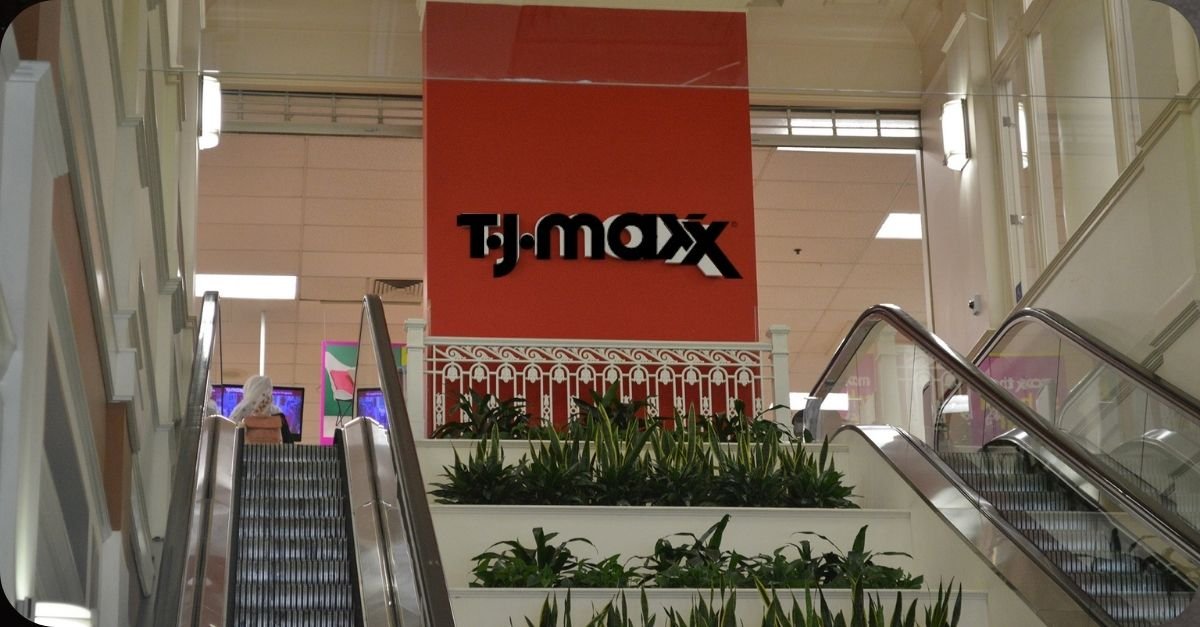
As technology continues to progress, privacy concerns have become more prevalent. This is especially true when it comes to online shopping and digital payments. One public concern is whether popular retailers like TJ Maxx can access your credit card details while shopping in-store.
You can make confident decisions about your data by staying informed about how retailers handle personal information. And with TJ Maxx prioritizing your security, you can shop without any concerns. Your peace of mind is vital, so let’s reveal the facts and trust TJ Maxx to keep your information safe. So go ahead and enjoy their amazing deals without any apprehensions! The answer is clear: your credit card details are protected with TJ Maxx. Shop confidently, knowing that your privacy is always our top priority.
Table of Contents
Understanding the TJ Maxx credit card breach
The TJ Maxx credit card breach in 2007 was a wake-up call for retailers and consumers. Hackers managed to access the company’s computer systems, compromising millions of customers’ personal and financial information. This incident highlighted the vulnerability of credit card data and raised concerns about retailers’ security practices.
It’s important to note that the TJ Maxx card breach was a significant event that led to changes in security protocols across the industry. Since then, TJ Maxx has implemented stricter measures to protect customer data, but it’s essential to understand how credit card information is stored and protected to fully comprehend the scope of their access.
How credit card information is stored and protected
Credit card information is typically stored in a secure database using encryption techniques. When you purchase TJ Maxx, your card details are encrypted and transmitted securely to confirm unauthorized parties cannot intercept them. Encryption is a process that encodes the data so that it can only be decrypted with a specific key, making it virtually impossible for anyone without that key to access the information.
Like other trustworthy retailers, TJ Maxx follows industry best practices regarding storing and protecting credit card information. They follow Payment Card Industry Data Security Standard (PCI DSS) requirements, which outline severe guidelines for the handling, storing, and transmitting card data. These trials are designed to protect customer information and prevent unauthorized access.
The role of encryption in securing credit card data
Encryption is crucial in obtaining credit card data during transmission and storage. When you swipe your card at a TJ Maxx store, the card terminal uses encryption to protect the data as it travels through the payment network. This ensures that even if someone were to intercept the transmission, they would not be able to decipher the encrypted information.
Once the transaction is complete, the credit card details are securely stored in TJ Maxx’s systems. The data remains encrypted, and only authorized personnel with the necessary decryption keys can access it. This additional layer of protection helps safeguard customer information and prevents unauthorized access to credit card details.
The limitations of in-store card lookup systems
While TJ Maxx takes privacy and security seriously, it’s essential to understand the limitations of their in-store card lookup systems. These systems are primarily used for returns, exchanges, and refunds, allowing store associates to access purchase information associated with a particular credit card.
However, it’s crucial to note that in-store card lookup systems do not provide access to complete credit card details. The systems typically mask sensitive information to protect customer privacy, such as the entire credit card number and CVV code. Store associates can only view limited transaction details, such as the purchase amount and date.
Legal and ethical considerations surrounding credit card privacy
Regarding credit card privacy, there are legal and ethical considerations that retailers like TJ Maxx must abide by. Laws such as the Payment Card Industry Data Security Standard (PCI DSS) and the General Data Protection Regulation (GDPR) in Europe dictate how card data should be handled and protected.
Retailers are legally obliged to implement security measures and safeguards to protect customer information. They must also obtain explicit consent from customers before collecting and using their data. Failure to conform to these regulations can result in severe penalties and damage a company’s reputation.
Steps consumers can take to protect their credit card information
While retailers like TJ Maxx have a responsibility to protect card information, there are steps that consumers can take to enhance their security. Here are some practical measures you can implement to safeguard your card details:
- Regularly monitor your card reports for any unauthorized transactions.
- Set up transaction alerts and notifications to receive prompt updates on your credit card activity.
- Use strong, unique passwords for your online accounts and consider using a password manager to store them securely.
- Be careful when sharing your card information online, and only provide it on secure websites with HTTPS encryption.
- Consider using virtual card numbers or mobile payment services for security when making online purchases.
By taking these precautions, you can minimize the risk of card fraud and protect your personal information.
TJ Maxx’s current security measures and policies
In response to the 2007 data breach, TJ Maxx implemented several security measures and policies to strengthen its data protection practices. These include:
- They enhanced encryption protocols to secure card data during transmission and storage.
- Regular security audits and vulnerability assessments to identify and address any potential weaknesses.
- Employee training programs to educate staff on best practices for handling customer data and preventing data breaches.
- Multi-factor authentication for accessing sensitive systems and databases.
TJ Maxx continues to invest in advanced security technologies and regularly updates its security protocols to stay ahead of evolving threats and protect customer privacy.
Recommended Article: Why is Google Services Charging my Credit Card?
To safeguard your card privacy:
- Review your credit card statements regularly and monitor for suspicious activity.
- Implement solid passwords and use secure websites when making online purchases.
- Stay informed about security best practices and follow the recommendations provided by retailers.
- Consider using additional security measures such as transaction alerts and virtual card numbers.
By being proactive and informed, you can mitigate the risks associated with credit card fraud and enjoy a safe online and in-store shopping experience.
Note:
Remember, your privacy matters; together, we can confidently and confidently navigate the digital landscape.
Other Retail Stores’ Card Lookup Capabilities
While we’ve primarily focused on TJ Maxx in this article, it’s important to note that other retail stores may have similar in-store card lookup systems. However, retailers may vary, and visibility to card details may always be a good idea to familiarize yourself with the privacy policies and security practices of any retailer where you frequently shop to ensure your personal information is adequately protected.
Conclusion
In conclusion, TJ Maxx and other reputable retailers prioritize customer privacy and implement robust security measures to protect credit card information. While in-store card lookup systems exist, they have limitations and do not provide access to complete credit card details. By understanding the policies and practices, you can shop confidently, knowing your security is a top priority.
[flexible-faqs id=’2118′]






